By Dan Weisz
Close to the Foothills, Fort Lowell Park is a 59 acre park at the site of the old Fort in Tucson at the corner of Glenn and Craycroft Roads. There is a small duck pond there that often attracts interesting wintering birds. When I visited ewarlier in the week, I was very happy to see a Belted Kingfisher there. These birds are uncommon migrants to Tucson and uncommon during winter, but seeing one is always an exciting treat.
The Cornell Lab of Ornithology’s allaboutbirds.org site describes this bird as a “stocky, large-headed bird with a shaggy crest and a thick daggerlike bill. Females are blue-gray with a chestnut belly band and flanks.”
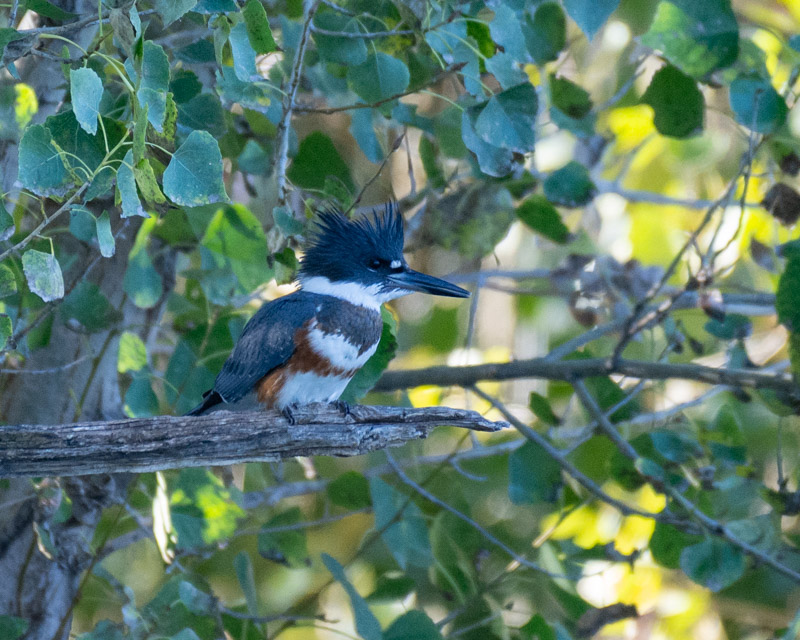
Belted Kingfishers live near water and fish constantly. Often, you can hear their distinctive rattling call before you can see them. The bird below has caught a fish which it quickly downed before returning to fishing. Here is an example of their call:
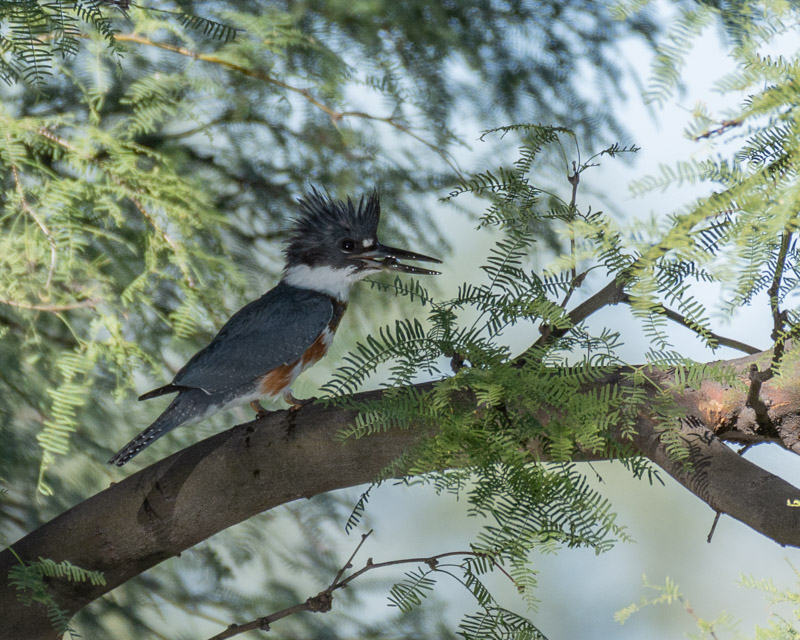
This female spent most of her non-fishing time perched in the shadows and leafy parts of several trees along the edge of the duck pond. At one point she did perch on an open branch across the pond from me. Her colors and shape were much easier to see there.
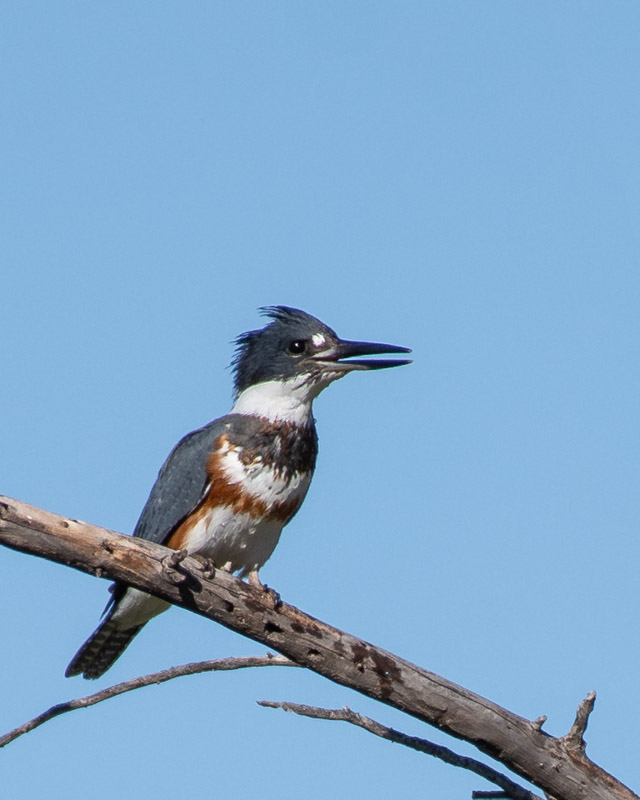
And up goes that crest!
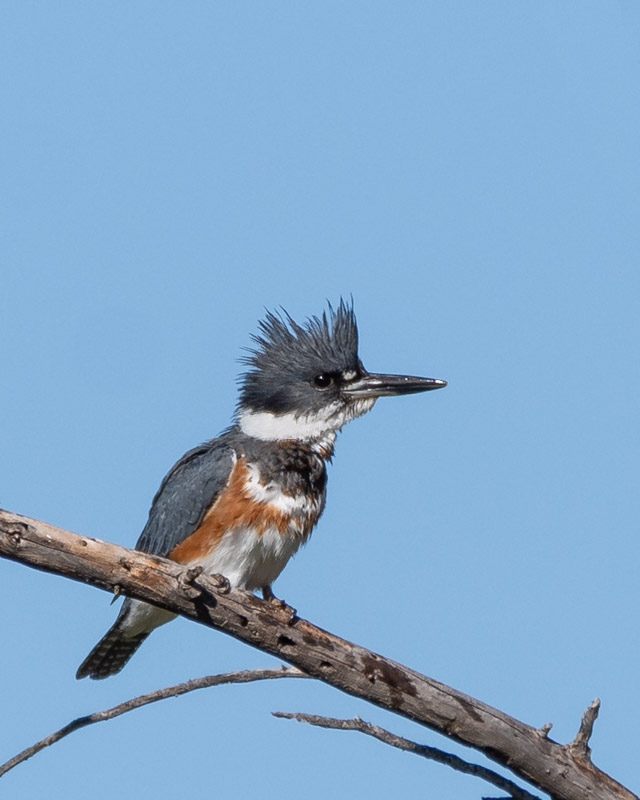
In most bird species, the males are more colorful than the females. The Belted Kingfisher is one of the exceptions. Males do not have that chestnut band or flanks. An interesting fact about Belted Kingfishers is that they create their nest burrows in dirt banks along the stream or water they claim as their fishing territory.
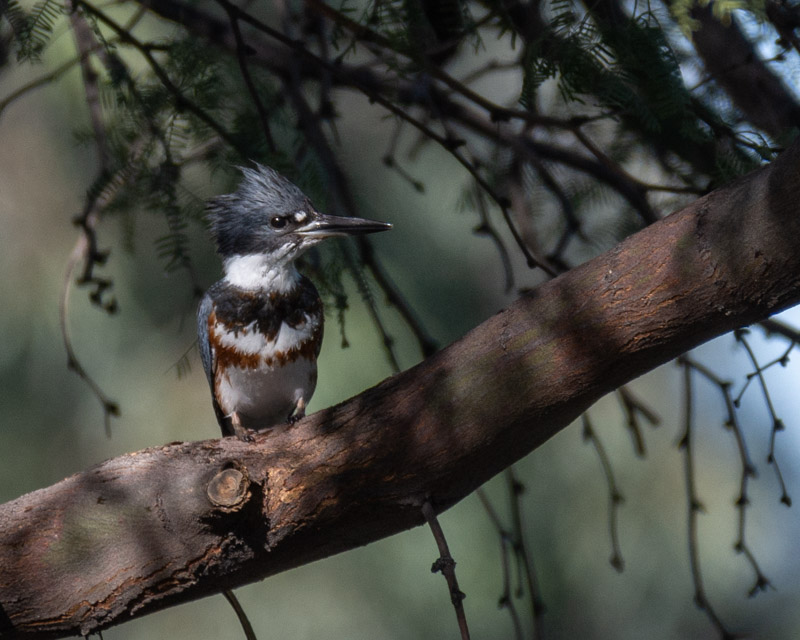
When Belted Kingfishers fish, they will plunge into water to grab their prey. Some times they do have to dry off. That’s the action I caught in the photo below.
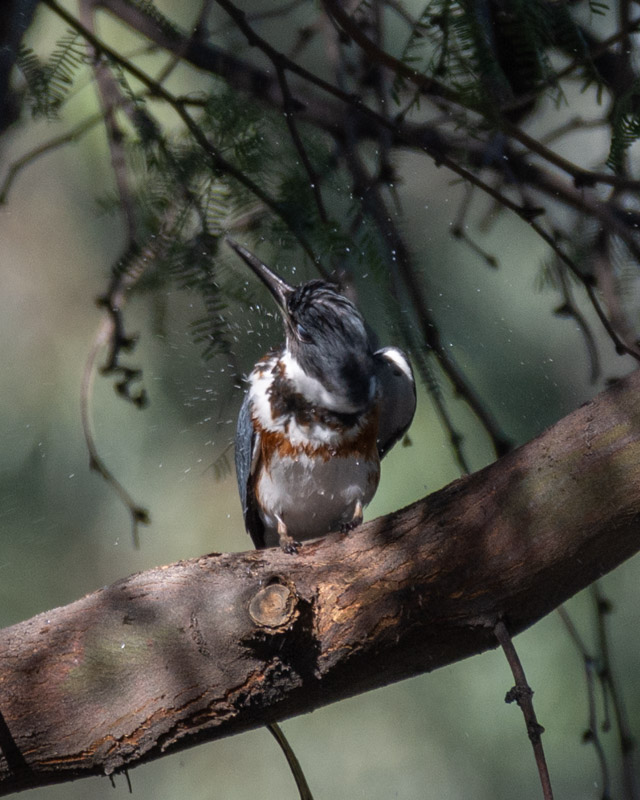
Besides the Belted Kingfisher, there were other noteworthy birds at the pond. One of the local Vermilion Flycatchers posed for me across the pond.
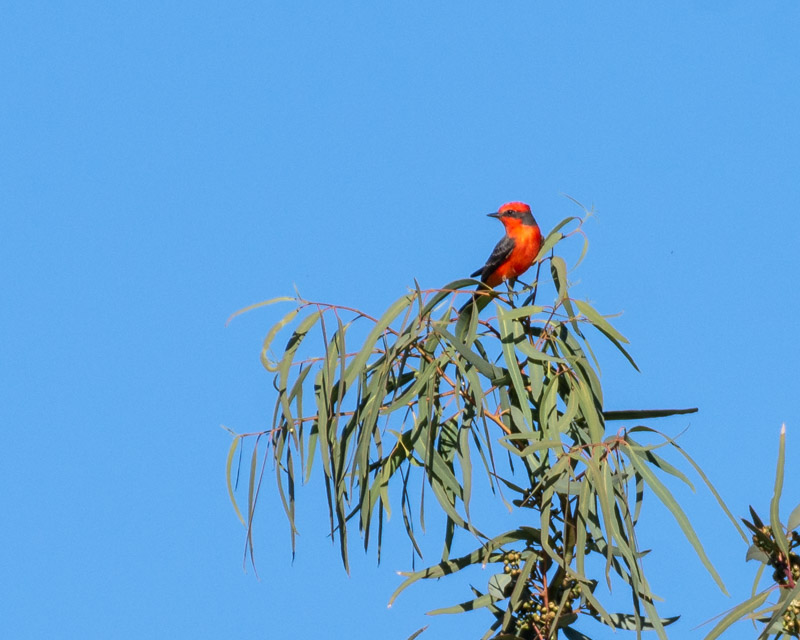
And the Western Grebe continued its wintering residence there:
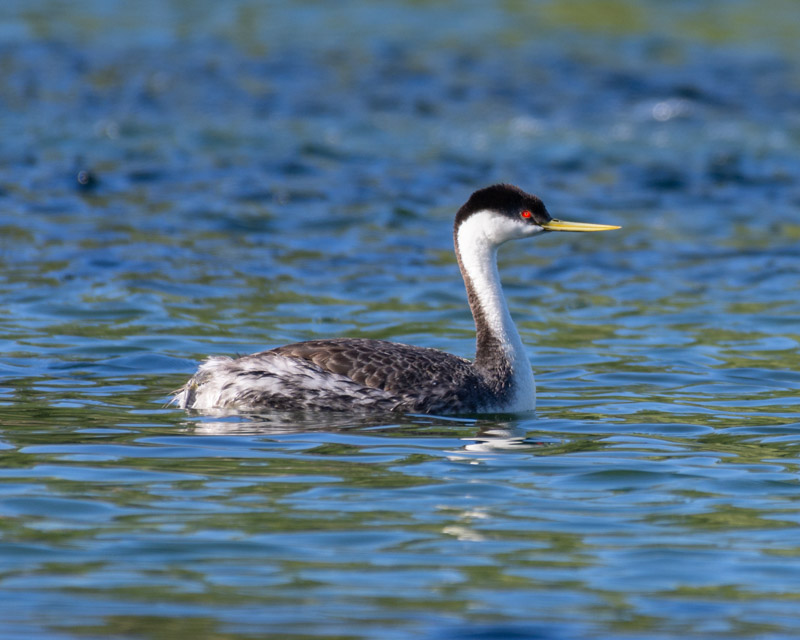
In this shot, you have to wonder whether it was being melodramatic, doing yoga, or just scratching the back of its head.
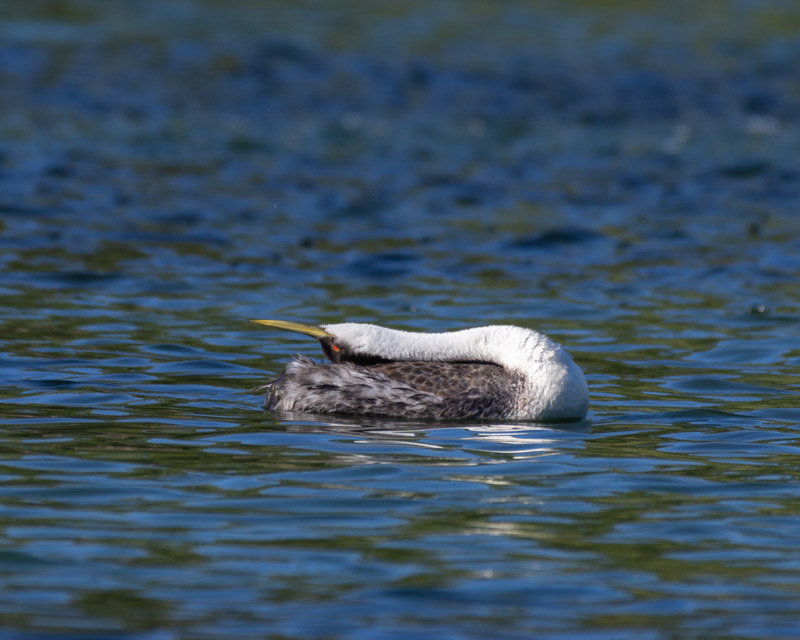
For more on Belted Kingfishers, see https://www.allaboutbirds.org/guide/Belted_Kingfisher/overview
